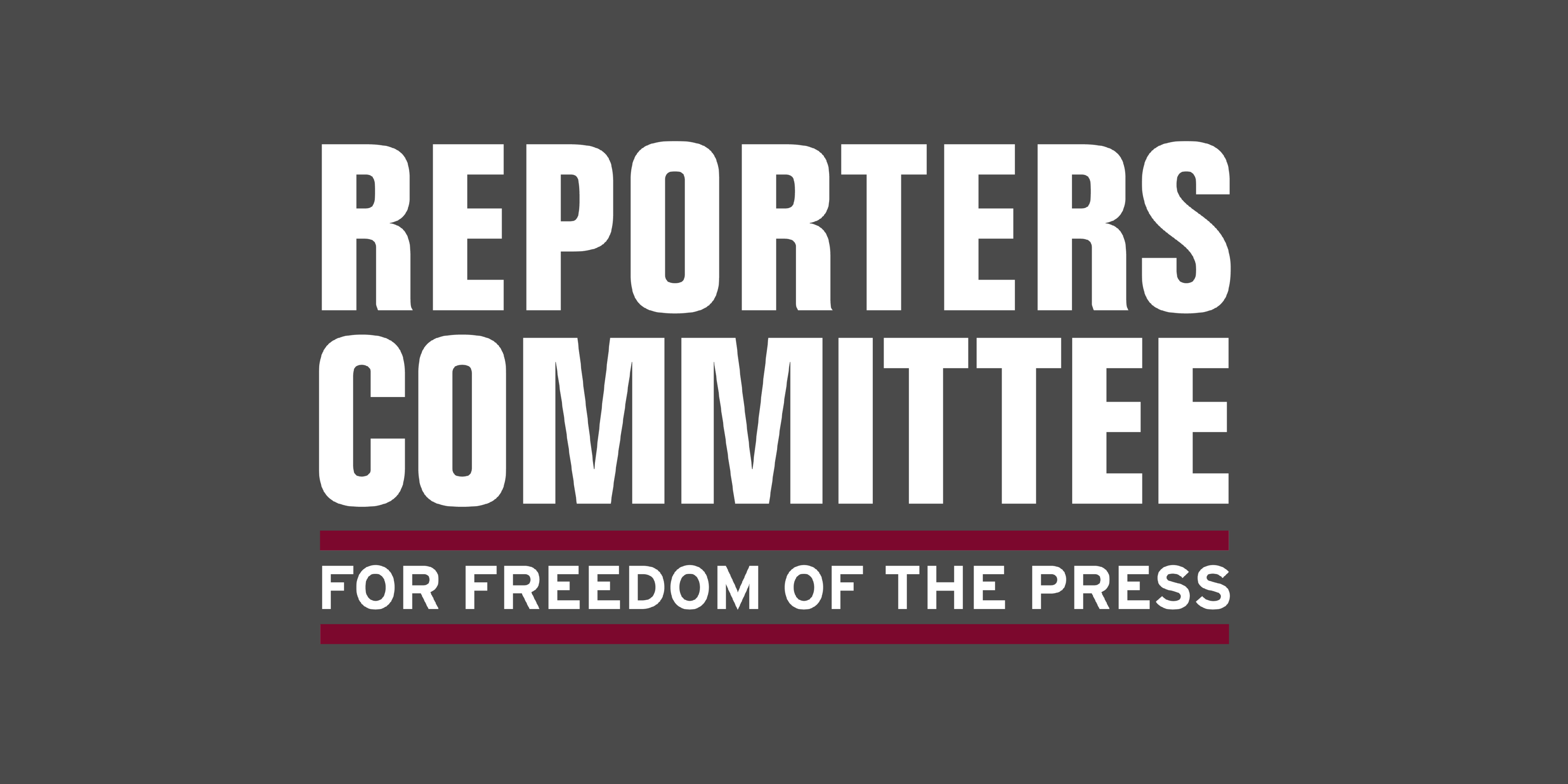Judge lifts veil of secrecy from legal battle over Maryland’s Anton’s Law

A judge is lifting the veil of secrecy from a legal battle concerning the public’s right to access police disciplinary records in Maryland after the Reporters Committee for Freedom of the Press and The Washington Post challenged a court order that shielded judicial filings from the public.
In an opinion issued last week, Judge Karla N. Smith of the Montgomery County Circuit Court granted a motion of the Reporters Committee and The Washington Post to intervene in the case — Officer John Doe v. Montgomery County, Maryland — to modify a protective order requiring filings to be submitted to the court under seal.
The judge agreed with arguments made by Reporters Committee attorneys that the public and news media have a presumptive right of access to judicial records and proceedings in the case under the First Amendment, the Maryland Constitution, and the common law. She largely rejected arguments made by the police officer suing Montgomery County to block public access to court filings in the ongoing battle over the release of his disciplinary records, concluding that the protective order is too broad and that it should be modified to allow the court filings to be made public, subject to necessary redactions.
“Plaintiffs’ assertions regarding the necessity of the Protective Order do not outweigh the public’s right to access, as access is essential to the operation of a democratic system,” Judge Smith wrote in her opinion.
As The Washington Post has reported, the lawsuit is one of the first test cases of the Maryland Police Accountability Act of 2021, known as Anton’s Law, which generally allows police disciplinary records to be disclosed under the state’s public records law.
The legislature passed Anton’s Law amid a nationwide call for increased police accountability and transparency following the murder of George Floyd and, in Maryland, the death of Anton Black at the hands of police.
Last July, the Fraternal Order of Police Lodge 35 and an officer identified only as “Officer John Doe” sued Montgomery County to prevent county officials from releasing the officer’s disciplinary records in response to a state Public Information Act request. They argue that Anton’s Law does not require, or permit, the county to disclose his own disciplinary records because they contain unsubstantiated allegations, allegations on which he was cleared of wrongdoing, and technical infractions, the release of which he alleges would be contrary to the public interest.
At the request of the officer and the police union, and without objection from the county, the Montgomery County Circuit Court entered a protective order allowing both parties to file their legal briefs and supporting records entirely under seal, making it impossible for members of the press and public to monitor developments in the case.
Last September, the Reporters Committee and The Washington Post moved to intervene in the case to obtain access to the court filings and hearings. Alexa Renehan, the woman who originally requested the officer’s disciplinary records, and the Maryland Coalition for Justice and Police Accountability also sought to intervene in the case.
On Feb. 24, Judge Smith granted all of the motions to intervene and concluded that the protective order must be modified.
“[T]he Protective Order is not narrowly tailored to protect Doe’s interests in his records,” Judge Smith concluded. “It is overbroad because it applies to all filings and hearings and not to just those pleadings and hearings related directly to Doe’s records.”
In addition to ordering the filings unsealed, the judge held that the press and public should be permitted to attend future hearings and see future filings. She also held that Officer Doe should be required to proceed using his real name, which had already been publicly reported, as he failed to show a compelling interest in denying access.
Before any court filings are made public, Judge Smith ordered the parties to attempt to reach an agreement as to whether and if so, how, the filings may be redacted. If the parties cannot agree on redactions, the court will hold a hearing on the matter. Until then, the filings in the case will remain sealed.
“We are pleased with the court’s decision to amend the protective order so that members of the press and public can monitor this important case, which could have major implications for the public’s right to access police disciplinary records in Maryland,” said Katie Townsend, the Reporters Committee’s deputy executive director and legal director.